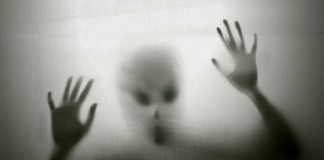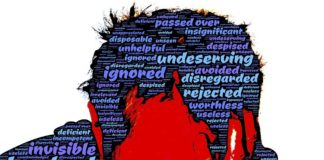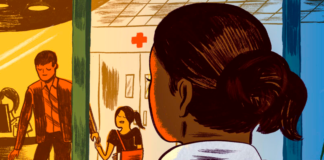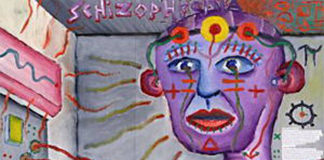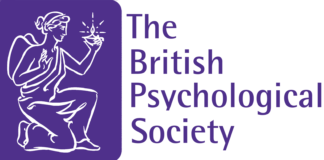Tag: Schizophrenia
The Sound of Madness
From Harper's Magazine: People who hear positive, encouraging voices often seen as spiritual guides or messages and people diagnosed with schizophrenia are usually thought of as...
Distinguishing Dissociative Disorders from Psychotic Disorders: Compounding Alienation
If a person recognizes the “alien” parts of themselves as being parts of themselves, they are likely to be seen as having PTSD or a dissociative disorder. If they see the “alien” parts of themselves as being literally aliens, or demons, they will likely be diagnosed as psychotic. But these experiences are really on a spectrum.
A Commentary on the Finnish Analysis of Outcomes of First Episode...
There are a number of well-recognised problems with this sort of study and we should be very cautious about accepting its conclusions at face value. The main problem is that it is an ‘observational’ study, not a randomised controlled trial, and these analyses can be seriously misleading.
Childhood Adversity Influences Levels of Distress in Voice Hearers
Research finds that hearing negative voices explains how childhood adversity is related to distress.
Study Explores Māori Community’s Multifaceted Understanding of “Psychosis”
A new study explores how “psychosis” and “schizophrenia” are viewed within the Māori community in New Zealand.
Existential Therapy Assists Patients Withdrawing From Psychiatric Drugs
Confronting existential anxiety through “Basal Exposure Therapy” shows promising results in people withdrawing from psychotropic drugs.
A Tale of Two Studies
With increasing evidence that psychiatric drugs do more harm than good over the long term, the field of psychiatry often seems focused on sifting through the mounds of research data it has collected, eager to at last sit up and cry, here’s a shiny speck of gold! Our drugs do work! One recently published study on withdrawal of antipsychotics tells of long-term benefits. A second tells of long-term harm. Which one is convincing?
Psychosocial Explanations of Psychosis Reduce Stigma, Study Finds
A review of mental health anti-stigma campaigns finds psychosocial models are effective in reducing stigma, while biogenetic models often worsen attitudes.
3 Women Tell Us What It’s Really Like to Live With...
From Refinery29: Three women who have been diagnosed with schizophrenia share their stories of experiencing psychosis, recovery, and dealing with societal prejudice against people with...
We Need to Encourage People to Make Advance Directives
In this piece for STAT, Jennifer Adaeze Okwerekwu describes the value of psychiatric advance directives for those at risk of experiencing an emotional crisis.
"'It’s something that can...
Schizophrenia Patients Calmed by Video Game
From BBC: In a recent study, patients diagnosed with schizophrenia were able to reduce the power of their hallucinations by playing a video game.
"All 12...
Word Salad is Not “Disorganized Thought and Speech”
This piece for Holistic Elephants discusses the role of social context and environment in our perception and construction of "word salad," a common symptom of psychosis and...
Interventions that Promote Disclosure Among Voice-Hearers
The perspectives of the voice-hearers featured in the research underscore that stigma and negative perceptions of voice hearing present significant obstacles within early intervention programs.
New Review Suggests Higher Recovery and Remission Rates for Psychosis
Meta-analysis gives updated recovery and remission rates for persons identified as having a first-episode psychosis and those diagnosed with schizophrenia.
Anticholinergic Medications Linked to Dementia Similar to Early Alzheimer’s
A new study, published in the Journal of Clinical Psychiatry, investigates the effects of anticholinergic medications, such as antidepressants and antipsychotics, on cognition in older adults diagnosed with schizophrenia.
Exercise Intervention for Youth at Risk for Psychosis Shows Promise
A new pilot study finds that an exercise intervention can lead to improvement in clinical, social, and cognitive domains for those deemed at risk for psychosis.
Reexamining Schizophrenia as a Brain Disease
Schizophrenia has occupied, and continues to occupy, a position of great import in psychiatry, and it is frequently used to assert the supposed biological nature of the field. What evidence is there to suggest that what we call schizophrenia is a disease of the brain? Surprisingly, very little.
Drop the Stigmatizing Term “Schizophrenia”
Dr. Brian Koehler is petitioning the American Psychiatric Association and the World Health Organization to drop the stigmatizing term "schizophrenia." Click here to sign the...
Study Challenges Assumption that Schizophrenia Impairs Cognitive Ability
Secondary factors may impair performance on cognitive tasks, making it difficult for individuals diagnosed with schizophrenia to perform to the best of their ability.
Beyond Critique: Psychologists Discuss Diagnostic Alternatives
The Journal of Humanistic Psychology compiles diverse research offering diagnostic alternatives toward a paradigm shift in mental health care.
Researchers Probe Connections Between Physical Activity and ‘Severe Mental Illness’
How does physical activity affect people diagnosed with bipolar, schizophrenia and major depressive disorders?
Psychologists Push For New Approaches to Psychosis: Part 2
The authors of the report expand upon the traumatic and sociopolitical factors underlying presentations of psychosis and “schizophrenia.”
The Touch of Madness
In this piece for Pacific Standard, David Dobbs recounts the story of Nev Jones, a psychologist with lived experience who is working to change the...
Psychologists Push For New Approaches to Psychosis: Part 1
Psychologists and people with experience of psychotic symptoms publish a report on new ways of understanding psychosis.
Rethinking the Validity of Schizophrenia on World Mental Health Day
An open letter launched on World Mental Health Day, supported by people with lived experience, friends, family members, workers and researchers, calls on Rethink Mental Illness, one of the major English mental health charities, to co-create a new conversation about the diagnosis “schizophrenia.”


